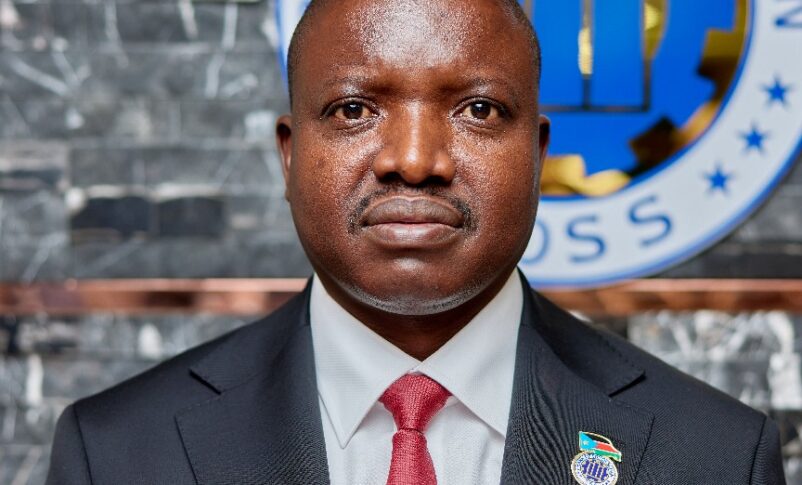South Sudan bans illegal trading in foreign currency
April 7, 2024 (JUBA) – The Central Bank of South Sudan has announced measures restricting illegal dealings in the foreign currencies on the market.
The move underscores the extent to which the country is tackling economic challenges largely attributed to disruption in the follow of oil due to war in Sudan.
The Central Bank Governor, James Alic Garang told reporters at a news conference held in Juba on Friday last week that the grace period of 45 days given to allow registration had elapsed, but that the bank was still willing to receive clients ready for registration and not recognize operation without permission and knowledge of the bank and relevant institutions in the country.
“We have done everything in our power as the regulator. We are now saying from today to eternity it is illegal to sell foreign currency in South Sudan if you don’t have a license. Without a license, it is illegal to sell. Where do we expect people to sell and buy, not under trees, not next to the cars or bus station but do it within the premises like any other businesses,” said Garang.
He listed places where selling and buying of foreign currencies without the knowledge of the Central Bank and other institutions would be considered illegal.
“So, we expect, for example, if someone is selling dollars in Konyo-Konyo in the midst of the market, he does not have a license, from today they need to stop. If somebody is doing that in custom market, Juba town, or in any other supermarkets in Juba and they have no licenses, they have to stop. Selling foreign currency is illegal as long you don’t have a license and anyone selling, we expect them to have their shops or premises where they would sell. And we are also directing them to display selling rates and buying rates,” stressed Garang.
He added, “Both sellers and buyers should act like other economic actors by ensuring they sell and buy the profit should not be abnormal like the way it has been in the past. So, we are advising, if you are the one buying, look at the daily rate and if you are the one selling also look at the daily rate. These are about the rate of the bank on the website of the bank. Those are given to guide banks, forex, and foreign traders.”
The Central Bank, in a statement, said it completed two phases during which it announced a 45-day period to stop illegal sale and buying in the country, directing law enforcement agencies and municipal officials to enforce the directive.
“Following the successful completion of phase III and the elapse of the 45-day grace period, the reorganization of the foreign exchange market has reached its final phase IV, starting on April 8, 2024. This phase requires a more collective and coordinated approach as the foreign exchange task force cracks down on the illegal trading of foreign currency on the streets of Juba and throughout the country,” the statement reads in part.
The Central Bank specifically cited the Foreign Exchange Business Act 2012, and the Anti-Money Laundering and Counter-terrorism Act 2012, as the basis of authority to deal with those involved in illegal activities, including dealing in foreign exchange trading without a valid license from the Bank of South Sudan.
The bank, in a statement released to the public on April 5, 2024, directed that all informal foreign exchange dealers are required to obtain licenses and comply with the policy directive without fail.
It urged law enforcement agencies to enforce the policy, ensuring compliance.
“The policy statement requires all authorized dealers to display buying and selling rates in their areas of operations. All currency traders should maintain spread or ensure a small variability between buying and selling rates to the bank reference rate,” further noted the statement.
“The statement urges all stakeholders, including members of the public, law enforcement agencies, and partners to conduct themselves respectfully and collaborate to permit compliance with the policy directive,” it concluded.
(ST)

